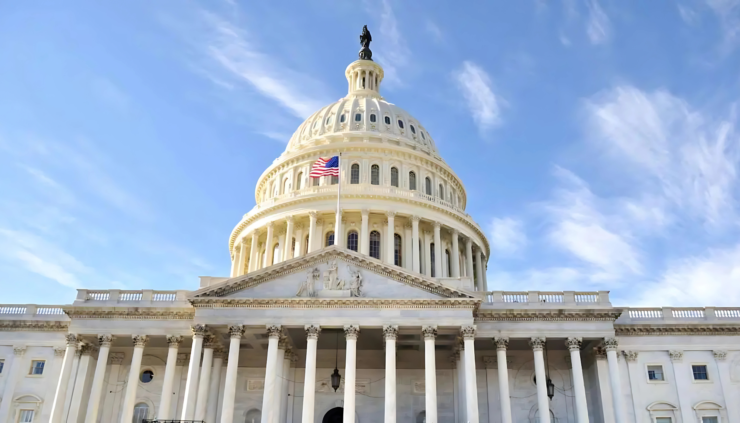In a significant move for crypto regulation, the U.S. House Financial Services Committee voted Wednesday to advance the STABLE Act, marking a key step toward establishing a comprehensive framework for dollar-backed stablecoins. The bill passed with a 32–17 vote after a mildly heated debate.
Formally titled the Stablecoin Transparency and Accountability for a Better Ledger Economy Act, the legislation outlines regulatory standards for reserve backing, auditing, anti-money laundering (AML) compliance, and operational safeguards for companies looking to issue dollar-pegged digital currencies in the U.S.
Committee Chair Rep. French Hill (R-AR) in his opening remarks, emphasized that the legislation is part of a broader initiative to ensure the U.S. remains competitive in the digital asset space.
“Blockchain technology continues to transform how money moves. The fact is: policymakers, regulators, and law enforcement must keep up with these changes,” Hill said.
Trump’s Stablecoin Ties Spark Debate, But Bill Moves Forward
The STABLE Act’s committee approval came despite renewed controversy over President Donald Trump’s personal involvement in the crypto industry, particularly through his family’s promotion of the USD1 stablecoin under The World Liberty Financial.
Several Democratic lawmakers used the session to highlight concerns over potential conflicts of interest. They proposed amendments that would bar the president, his cabinet, and senior government officials from launching or profiting from stablecoin ventures while in office. Each proposal was ultimately rejected along party lines.
These ethical concerns follow earlier comments from Committee Chair Rep. French Hill, who acknowledged this week that Trump’s crypto affiliations have added complexity to the legislative process.
Bill Designed to Complement Broader Stablecoin Regulation
The STABLE Act’s progress in the House sets the stage for a broader legislative effort that now depends on coordination between both chambers of Congress. Key differences remain between the House bill and the Senate’s version, known as the GENIUS Act, particularly around how state-level regulation should be balanced with federal oversight and how foreign issuers like Tether will be treated under U.S. law.
Once the STABLE Act passes a full House vote, it will move to the Senate, where lawmakers must conduct their own committee review. If approved, the two versions of the bill must then be reconciled before a final version can be sent to President Trump for signature.
This marks the second attempt by the House Financial Services Committee to advance stablecoin regulation after a failed effort in 2023. With a growing bipartisan consensus and increased industry momentum, this latest push is being closely watched as a potential breakthrough moment for digital asset oversight in the U.S. If successful, it would mark the first major federal legislation aimed at standardizing the regulation of dollar-backed stablecoins in the United States.
Quick Facts
- The STABLE Act passed the House Financial Services Committee with a 32–17 vote, advancing a federal framework for stablecoin regulation.
- The bill sets standards for reserve backing, auditing, and AML compliance for U.S. dollar-pegged digital assets.
- Debate over Trump-linked stablecoin USD1 fueled partisan concerns, but GOP lawmakers insisted the bill treats all issuers equally.
- The Senate will now review the legislation alongside its GENIUS Act, with final passage requiring reconciliation between both chambers.





